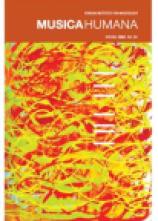
The Orpheus saga marked the birth of a new operatic genre and became a model for significant compositional reform. Raniero de Calzabigi, librettist for Christoph Willibald Gluck, stripped the myth to its essential narrative, discarding subplots and intrigues. This shift redirected opera from opera seria toward azione teatrale, emphasizing theatrical action and emotional immediacy. Gluck reflected this evolution by largely abandoning the elaborate arias and coloratura typical of opera seria, favoring instead simple melodies, choral passages, and accompanied recitatives. In 1774, Gluck substantially revised the work for its Paris debut–particularly the recitatives–infusing it with heightened drama and aligning it more closely with the tragédie lyrique tradition of French opera. Later, in 1791, Joseph Haydn’s final opera, L’anima del filosofo ossia Orfeo ed Euridice, offered a humanist interpretation of the myth. Here, Orpheus emerged as a philosophical figure, resonating with Enlightenment ideals.

By the 19th century, interest in Orpheus-themed operas had waned, giving way to a broader exploration of the myth across other musical forms such as symphonies, cantatas, and operettas. As early as 1689, an Orpheus parody appeared, and by the late 18th and 19th centuries, additional satirical operettas followed. The most renowned of these is Jacques Offenbach’s Orphée aux enfers (1858), which helped inaugurate the French operetta tradition. In the 20th century, opera composers rediscovered the Orpheus myth with renewed interest. Darius Milhaud’s Les Malheurs d’Orphée (1926), a deliberate break from grand Romantic opera, sets the myth in a pastoral landscape, portraying Orpheus as a humble farmer and miraculous healer who is tragically powerless to save his wife Eurydice from a mysterious illness. This evolving view of Orpheus–as an allegory for the artist–had gained prominence since the late 19th century and is echoed in Oskar Kokoschka and Ernst Křenek’s 1926 play Orpheus and Eurydice. Here, the myth becomes a metaphor not only for the struggle between the sexes–Eurydice, now allied with Hades, refuses to return to Orpheus and ultimately kills him to reclaim her autonomy–but also for the artist’s torment in striving to hold on to their creative muse.
This according to the entry on Orpheus by Britta Schilling-Wang in MGG Online.









